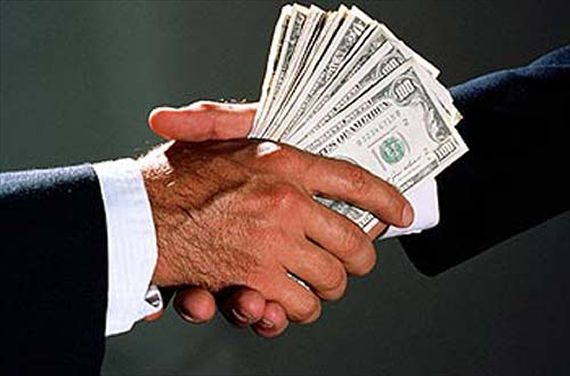
Our systems of government have been captured by the corrupting influence of vested interests in big oil deals
By: Lili Fuhr and Simon Taylor
Anti-corruption campaigners achieved a number of crucial victories in 2016, not least by ensuring accountability for one of Big Oil’s most crooked deals: the acquisition of Nigerian offshore oil block OPL 245 in 2011 by Royal Dutch Shell and Eni, Italy’s largest corporation. Last December, Nigeria’s Economic and Financial Crimes Commission indicted some of the Nigerians involved, and Italian prosecutors then concluded their own investigation, bringing the executives and the companies responsible for the deal closer to standing trial.
Several months earlier, in June 2016, the U.S. Securities and Exchange Commission published a rule, under Section 1504 of the 2010 Dodd-Frank Act, requiring oil, gas, and mining companies to disclose all payments made to governments on a project-by-project basis. If the SEC had issued its rule earlier, Shell and Eni most likely would not have gone ahead with the OPL 245 deal, because they would have had to disclose their payment. But opposition from the oil industry delayed the rule, so the companies were able to conceal their payment.
Last year also marked the first time in millions of years that the concentration of CO2 in the atmosphere reached 400 parts per million (ppm). While the Paris climate agreement was hailed as a major success when it was concluded in December 2015, many signatories have displayed a remarkable lack of ambition in upholding their carbon-reduction commitments. To understand why is to see the sheer extent to which our systems of government have been captured by the corrupting influence of vested interests.
The story of OPL 245 began in 1998, when the Nigerian dictator Sani Abacha awarded the block to Malabu Oil and Gas, which was secretly owned by Dan Etete, Abacha’s own oil minister. Thus, Etete had essentially given OPL 245 to himself. But after the Abacha regime fell, the block was taken from Malabu and awarded to Shell. This triggered a series of legal battles between Malabu, Shell, and the Nigerian government that ended only with the corrupt Shell-Eni deal in 2011.
Public documents show that the $1.1 billion that Shell and Eni paid to the Nigerian government for the deal was, in reality, being paid to Malabu. Both companies knew that this payment method, through an account created by J.P. Morgan in London, was in breach of the Nigerian constitution, and that the funds would end up in private hands.
Eni claims that it investigated the deal and found “no evidence of corrupt conduct in relation to the transaction.” Shell, for its part, says that it only paid the Nigerian government, and that it does “not agree with the premise behind various public statements made by Global Witness about Shell companies in relation to OPL 245.” But Italian prosecutors have now requested a trial for several senior Eni executives – including the current CEO, Claudio Descalzi, and his predecessor – as well as Etete and several others; and they are pursuing separate charges against four senior Shell executives.
 The Independent Uganda: You get the Truth we Pay the Price
The Independent Uganda: You get the Truth we Pay the Price



